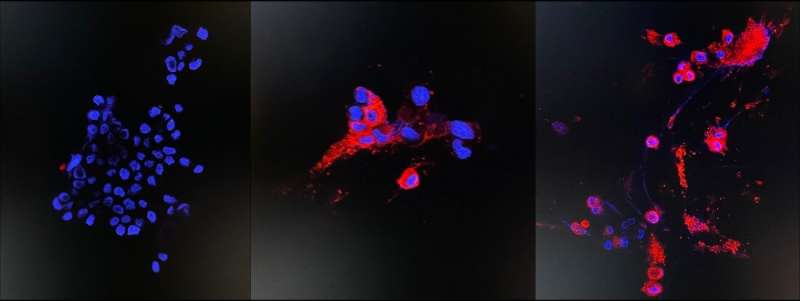Research team isolates omicron variant from clinical specimens

Researchers at the Department of Microbiology at The University of Hong Kong have succeeded in the isolation of SARS-CoV-2 omicron variant from clinical specimens. This is the first known research team in Asia that has succeeded in isolating the omicron variant. The isolated variant will enable the development and production of vaccines against omicron, which has been designated as a "variant of concern" by the World Health Organization.
The research team is now working on expanding the virus for use in assessing its transmissibility, immune evasion capability, and pathogenicity in animal models. The team is also exploring opportunities for urgent development and production of inactivated whole virus vaccines.
The HKU team succeeded in isolating the variant late Monday, four days after the first two omicron cases were confirmed in Hong Kong on 25 November, and five days after the variant was first reported to the World Health Organization (WHO) from South Africa on 24 November.
WHO designated the variant, initially identified as B.1.1.529 a variant of concern, and named it omicron on 26 November. Cases of the omicron variant have since been reported from around the world in countries such as Australia, Belgium, Botswana, Britain, Denmark, Germany, Hong Kong, Israel, Italy, the Netherlands, France, and Canada, as governments impose urgent travel bans and heightened surveillance.
"We recognize the serious threats of the variant and jumped into action immediately," said Chair of Infectious Diseases Professor Kwok-yung Yuen, who led the research effort. "Isolating the variant is the first step in the urgent study of the variant."
Other leaders of the research team include Professor Honglin Chen and Dr. Kelvin To, Head of the Department of Microbiology.
"We are glad that our department is contributing to the global effort to fight the pandemic amid the emergence of the omicron COVID-19 variant, " said Dr. To.
On 28 November, a third omicron case was identified in Hong Kong, as a 37-year-old man returning from Nigeria via Ethiopia and Thailand was tested positive during his quarantine at a local hotel.
Virus isolation and incubation were conducted at the biosafety level 3 laboratory (P3 laboratory) of the University of Hong Kong, following standard operating procedures. HKU currently has the only P3 laboratory in Hong Kong.
The microbiology team is now working to further isolate and purify the variant virus for inactivated whole virus vaccine production.
The culture of the virus was carried out using SARS-CoV-2 susceptible cells. Various markers show that the isolation and culture of the virus was successful. Cytopathic effects with cell rounding and shrinking started to appear at 24 hours and were complete in 48 hours. Immunofluorescent staining of the infected cell line showed abundant nucleocapsid protein expression.

















